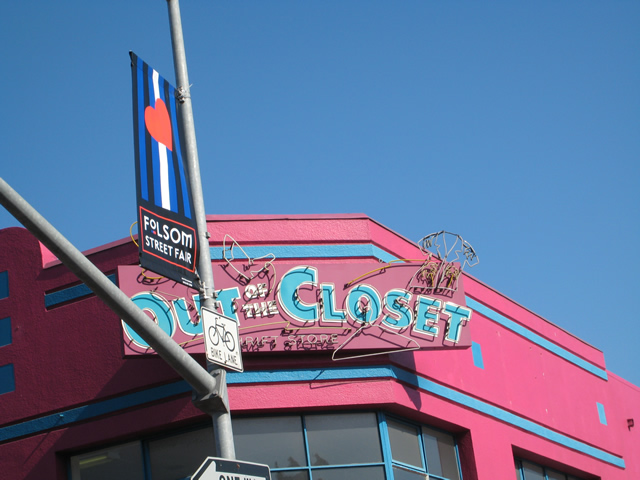From 1967 to 1972 my family lived in Bangkok. My dad worked for the US Agency for International Development, so we were officially part of the diplomatic community, with all the rights and privileges pertaining thereto.
One of which was to live in a sort of expatriates’ ghetto, an apartment compound called Red Rose Court – eight or ten rows of three-story townhouses, all rented by falang (foreign) families. This little village was administered by Orapa, a Thai woman so fierce that her title – “landlady” – was synonymous with fear (for me, at least – I was a timid child).
Red Rose Court had a large driveway running its length, on one side bordered with a tall hedge of red – not roses! – hibiscus. The main gate opened onto the large, heavily-trafficked avenue that was Red Rose Court’s official address. Out the front gate and half a block to the right were a few shops that I was allowed to visit to buy candy.
The back gate gave onto a smaller, dirtier street where I was forbidden to go at all. Both gates were usually open during the day, but by some unwritten rule (I don’t remember whether there were guards) no one came in except people who were supposed to be there. And some of Bangkok’s teeming population of mangy, underfed, abused stray animals.
I was a timid child, but not stupid, and I loved animals. I learned early the trick of: “Mom, it followed me home, can I keep it?” My mother loves cats, so it wasn’t difficult to persuade her, and we acquired two cats that way. Dogs, too, realized that we foreigners were a soft touch, especially compared to Thais, who were often cruel with strays – I had seen Thai kids throwing rocks at dogs, and hitting them with sticks.
It didn’t take much street smarts for any animal to realize that Red Rose Court was a gold mine: 40 families with kids, many of them nostalgic for pets they had left behind in America, and most far more disposed than the locals to be kind to animals. When a small, skinny street dog made overtures, the kids in the compound responded gladly (in spite of our parents’ dire warnings about animals carrying rabies), and showered her with love and treats. She was grateful and affectionate, if not terribly clean. But the dirt didn’t show much against her coat. She was a color that would be called tortoiseshell on a cat; being a dog, she was brindled.
Street dogs all over Asia are much the same (I believe someone has written a thesis explaining why): medium height and light build, very short fur in various colors, lopped-over ears, stringy tails, and, usually, a head-down, furtive demeanour. They are also treated much the same all over Asia: badly.
We kids kept the dog for several weeks, hiding her when grownups were around because we were pretty sure they wouldn’t approve. But Orapa knew everything that went on in Red Rose Court, and she definitely didn’t approve of filthy animals sullying her property. She called in the dog catchers.
Had they arrived during school hours, the dog would have simply and quietly disappeared. But the dog catchers showed up with their big nets – just like in Warner Brothers cartoons – at a time we were all around, and we knew immediately what was up.
Instead of a quiet roundup of one insignificant dog, the catchers and Orapa found themselves confronted with a howling, weeping mob of kids of all ages. Though Orapa tried to calm us by claiming that the dog wouldn’t be hurt, we knew she was lying: in Thailand at that time there was no question of holding an animal at a shelter for adoption: she would simply be killed, immediately (and probably not “humanely”).
We led them a merry chase, always getting between the dog catchers and the dog, with Orapa screaming behind, until they finally cornered us. Then there was a standoff, the dog catchers not quite daring to physically wrest the dog from us.
My mother swooped in like an avenging angel and offered to officially adopt her. I’m not sure Orapa appreciated this – if this lowly street dog was elevated to the status of official pet, she would have to continue to tolerate its presence, and the defeat grated on her.
Duchess, as my mother named her, was one smart dog. Though she hadn’t had any contact with my mother before, she recognized her savior, and adopted our family in turn. She behaved well through being vetted and bathed, and stuck close to home ever after.
The following year my dad was posted back to Bangkok (after two years in Vietnam), and Duchess moved with us to a big house the next street over, a property also managed by Orapa. In a house like this, a watchdog was essential – housebreaking was so common, and the thieves so skilled, that we knew foreign families who lost one stereo after another, and never even heard anyone in the house.
Nothing of the sort ever happened to us. Perhaps because she had been so cruelly treated on the streets, Duchess hated Thais (though she accepted our servants as part of the family), and would attack strangers on sight, no questions asked. Workmen, gardeners, and other legitimate visitors had to be escorted through the property, and no one else got in at all. In our three years in that house, we only ever had one thing stolen: a table cloth that was drying on the clothesline near the back fence. My dad was roused by Duchess’ barking just in time to see someone scrambling over the wall – and leaving a bloody trail behind.
My parents separated in 1972 and I left Thailand with my father to return to the US, while my mother stayed behind in Bangkok and remarried. Duchess stayed with her and Gary til they, too, moved; then she stayed with Wandee, who had been our maid. Most expatriates didn’t try to carry pets from country to country – too expensive, risky for the animals, and in some places simply impossible. A constant theme of the roaming expatriate life is the repeated loss of dear, familiar fixtures in your life such as pets.
I remember another dog that got left behind by a Red Rose Court family. It stayed in Red Rose Court, adopted by another family, but every time a car came down the driveway, it would race out to see if its own, original family had finally come back. It was heartbreaking to see this dog running out, time after time, car after car, ears pricked and tail up with happy expectation. Then it would see that the car was the wrong one, and just collapse in on itself, drooping with disappointment.
I wonder if Duchess acted that way when we left.
Note: I confess that I actually wrote this several years ago, for my friend Claudia who was thinking of putting together an anthology, but apparently never found a buyer. I’ve been thinking about stories lately, so decided to dig out this one and share it.










